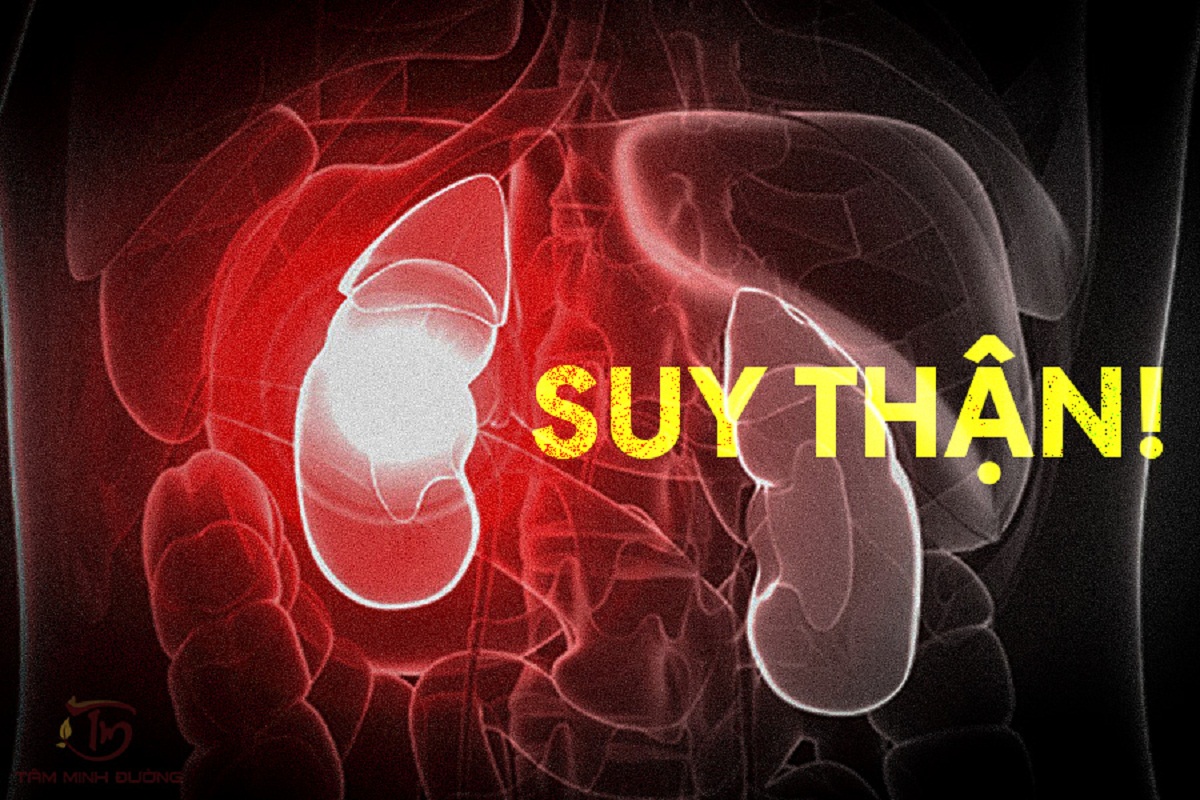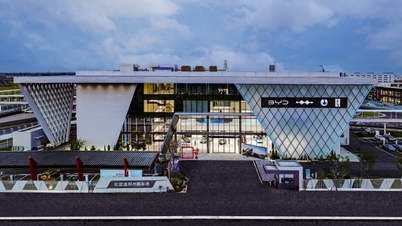When the kidneys fail, lifelong dialysis or a kidney transplant is necessary.
With proper management and new treatments, kidney disease can be prevented and controlled.
1. Know what puts you at risk for kidney disease.
Diabetes, or high blood sugar, is the number one risk factor for kidney disease. High blood pressure is also strongly associated with kidney disease. Other risk factors include heart disease, obesity, family history, past kidney damage, and aging. As we age, our kidneys lose some of their function.
When the kidneys are not functioning properly, you may experience the following conditions:
- Tiredness, lack of energy, difficulty concentrating.
- Difficulty sleeping.
- Dry and itchy skin.
- Urinate more frequently.
- Blood in the urine.
- Bags around the eyes.
- Swelling of the ankles and feet.
- Muscle cramps.
Physical warning signs of kidney disease are rare. Most kidney disease is detected through blood tests. However, if you have foam or blood in your urine, you may have a kidney disorder. People with kidney stones may experience sharp, radiating pain in the groin area. The National Kidney Foundation states that stones increase the risk of kidney disease.
Dr. Michelle Josephson, a nephrologist at the University of Chicago School of Medicine, says you should ask your doctor or pharmacist about the effects of the medications you take on your kidneys. Some immunosuppressants, nonsteroidal anti-inflammatory drugs, antibiotics, and other medications can increase the risk of kidney disease.
2. Talk to your doctor about ways to prevent and treat kidney disease.
If you have diabetes, prediabetes, high blood pressure, a family history of kidney disease, or other risk factors, get your kidney function checked with blood and urine tests.
Kidney disease often develops silently, so testing is the only way to know if you have any damage. The results will tell you how well your kidneys are functioning.
More specifically, a blood test will tell you how well your kidneys are filtering your blood by measuring creatinine—a protein produced by muscles that is normally filtered and excreted in urine. When the kidneys are not functioning properly, creatinine levels build up in the blood. A urine test can detect whether protein enters the urine when the kidneys are damaged.
In addition, it is necessary to monitor and control blood sugar levels, blood pressure, and weight, and make healthy lifestyle changes.

Regular kidney function tests are essential for preventing kidney diseases, including kidney failure.
3. Control blood sugar levels
The number one cause of kidney failure is diabetes, which can damage the cells and blood vessels in the kidneys. Kidney disease is a common complication of diabetes. According to Dr. Susan Quaggin, head of nephrology and hypertension at the Feinberg School of Medicine at Northwestern University, diabetes accounts for nearly half of all new kidney failure cases diagnosed each year.
An A1C test is needed to measure your average blood sugar levels over the past three months. It's important to know whether you are at risk for diabetes or prediabetes, as well as how well you are managing your diabetes.
4. Control blood pressure
High blood pressure, or hypertension, is often associated with kidney disease. According to the National Institute of Diabetes, Digestive and Kidney Diseases, about half of American adults have high blood pressure. If your blood pressure is consistently high, you should have your kidney function checked.
High blood pressure is a very common problem. By staying active, avoiding excessive salt intake, and taking prescribed medication, you can help lower your blood pressure. It's important to check your blood pressure regularly.
5. Choose healthy foods to protect your kidneys.
Eating a healthy diet is important for overall health, but if you have kidney disease or are at risk of developing it, you should pay special attention to your nutrition. You may even need to consult a nutritionist experienced in kidney health to learn how to avoid foods that affect your kidneys' ability to filter blood and remove waste from your body.
Your diet should be low in salt. Salt can cause high blood pressure, especially if you have narrowed blood vessels. So avoid adding salt to your food and eat fresh foods instead of preserved products that contain large amounts of salt and sugar. Skip fatty meats and buy items labeled "reduced sodium" or "low sodium".
Reduce your sugar intake. There's a direct link between too much sugar and diabetes, which can lead to kidney disease. Drink water instead of cola and sugary fruit juices. Remember that many spices are high in sugar and sodium and should be minimized.
Finally, pay attention to the amount of protein you eat. Too much can damage your kidneys, causing them to overwork. The healthy amount of protein to eat depends on your body size and activity level, so it's important to discuss this with your doctor.

Physical activity can keep the kidneys healthy or prevent further damage.
6. If you have kidney disease, limit foods that are bad for your kidneys.
Potassium plays many roles, including helping the body maintain normal fluid levels within cells, affecting blood pressure, and controlling muscle contraction. However, for people with kidney damage, too much potassium can overload the kidneys and damage the heart. Avoid dried fruit, baked potatoes, lentils, bananas, and dairy. Again, talk to your doctor for this information.
People with kidney disease also need to limit phosphorus. Along with calcium, it's essential for building strong bones and keeping you healthy, but too much can damage the kidneys and make it difficult to excrete. Phosphorus is often used as a food additive or preservative and can be found in bottled drinks and pre-packaged and canned processed foods. It doesn't have to be listed on food labels, but you may see words starting with "phos" indicating hidden phosphorus. You should talk to your doctor or a nutritionist about how much is too much.
If you have advanced kidney disease, you should strictly follow the recommendations of your nephrologist and dietitian. Generally, avoid foods high in sugar, potassium, and phosphorus and maintain a heart-healthy diet. Depending on the stage of the disease, protein and fluid intake may also need to be restricted.
7. Get enough exercise to help control blood sugar and blood pressure.
Like good eating habits, exercise is crucial for overall health and can keep kidneys healthy or prevent further damage. Regular physical activity such as walking, swimming, and cycling helps improve blood pressure, blood sugar levels, lower cholesterol, and maintain a healthy weight. Low-intensity strength training with weights will also improve overall health. Talk to your doctor before starting an exercise plan, but your goal is usually to exercise at least five days a week, 30 minutes each day.
8. Stop smoking.
Smoking is harmful to overall health. According to a 2010 study published in BMC Public Health, smoking increases the risk of kidney disease.
If you already have kidney problems, smoking will make the condition worse. It damages blood vessels, slows blood flow to the kidneys and other organs, and irritates the kidneys. It can also interfere with medications used to lower blood pressure.
9. Get enough sleep.
Sleep is crucial for overall health and well-being. It provides more energy, improves focus, lowers blood pressure, and helps control appetite.
New research has linked sleep deprivation and sleep disorders to higher rates of diabetes, cardiovascular disease, and kidney failure. People who sleep less tend to experience a faster decline in kidney function.
Researchers have discovered that kidney function is regulated by sleep-wake cycles, which may help coordinate the kidney's workload.
Source



![[Image] Central Party Office summarizes work in 2025](/_next/image?url=https%3A%2F%2Fvphoto.vietnam.vn%2Fthumb%2F1200x675%2Fvietnam%2Fresource%2FIMAGE%2F2025%2F12%2F18%2F1766065572073_vptw-hoi-nghi-tong-ket-89-1204-jpg.webp&w=3840&q=75)































































































Comment (0)